In the pioneering spirit that has characterised previous endeavours on Brownsea Island, a group of seven BU Environmental Science students and staff have been carrying out surveys and studies that will contribute to the creation of a Marine and Coastal Observatory for Poole Harbour. In a partnership that includes the National Trust, Dorset Wildlife Trust and Poole Harbour Study Group, the observatory will create a fusion of coastal research and teaching and provide student placement opportunities.
During this past week, students have been carrying out plankton surveys with Dr Dan Franklin, establishing intertidal monitoring stations and recording nesting bird behaviour on the lagoon with Dr Roger Herbert and Dr Rick Stafford and fieldwork linked to coastal sediment movements and cliff erosion with BU geomorphologists Andy Ford and Dr Luciana Esteves. We were grateful for excellent accommodation at the Dorset Wildlife Trust ‘Villa’ and boat and equipment logistics and transportation using the National Trust vessel Enterprise. 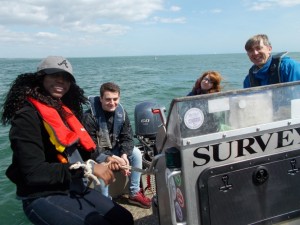

Students on board Sea Rush sampling plankton with BU marine biologists Dr. Dan Franklin and visiting Prof. John Humphreys (jhc Research and Poole Port Commissioner).
Examining the catch in the National Trust ‘Sail Loft’.

View down the microscope showing copepods. On hand was BU Alumni and local plankton expert Andrew Powell from Poole Harbour Study Group.
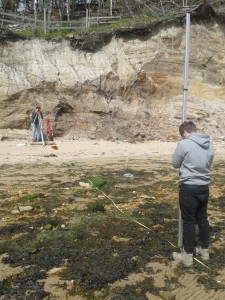
Surveying beach profiles on the south-west coast.
Important aims of the Observatory are to create a web-based an inventory of marine life of the harbour and to publish reports and papers that record and interpret environmental change.
For further information contact Dr. Roger Herbert, Department of Life and Environmental Sciences.
rherbert@bournemouth.ac.uk

 We would like to invite you to the latest research seminar of the Creative Technology Research Centre.
We would like to invite you to the latest research seminar of the Creative Technology Research Centre.
![image[1]](http://blogs.bournemouth.ac.uk/research/files/2016/05/image1-1-300x113.jpeg)
 Join us to take a closer look at how research can have an impact beyond academia, and the ways in which this can be achieved.
Join us to take a closer look at how research can have an impact beyond academia, and the ways in which this can be achieved.


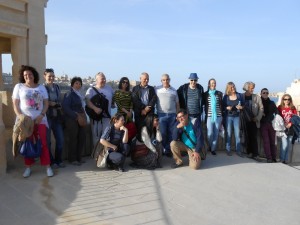
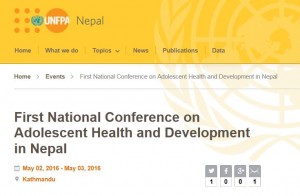


 The Arts and Humanities Research Council (AHRC) is launching its 2016 Research in Film Awards in a bid to find new and emerging talent that straddle the worlds of both film making and arts and humanities research.
The Arts and Humanities Research Council (AHRC) is launching its 2016 Research in Film Awards in a bid to find new and emerging talent that straddle the worlds of both film making and arts and humanities research.
 The Research Councils have informed us that they will be upgrading their electronic grants submission service in 2017. The Je-S system has come to a natural end and they plan to design a smarter, simpler more user friendly service in line with the latest digital standards. Work is already underway to design the new awards service. This work is based on extensive user research and BU will nominate a primary coordinator (from RKEO) to engage with RCUK about this project.
The Research Councils have informed us that they will be upgrading their electronic grants submission service in 2017. The Je-S system has come to a natural end and they plan to design a smarter, simpler more user friendly service in line with the latest digital standards. Work is already underway to design the new awards service. This work is based on extensive user research and BU will nominate a primary coordinator (from RKEO) to engage with RCUK about this project.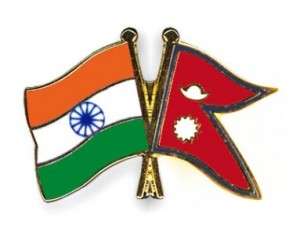












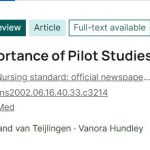 Paper with 160,000 reads
Paper with 160,000 reads The Month in Research: April 2024
The Month in Research: April 2024 BU Professor has been invited to a series of plenary and invited lectures.
BU Professor has been invited to a series of plenary and invited lectures. Research reaching non-academic audiences
Research reaching non-academic audiences April’s Café Scientifique – Should we help machines understand and respond to our emotions?
April’s Café Scientifique – Should we help machines understand and respond to our emotions? Apply for up to £1,000 to deliver an event and take part in a national festival of public engagement with research
Apply for up to £1,000 to deliver an event and take part in a national festival of public engagement with research MSCA Postdoctoral Fellowships 2024
MSCA Postdoctoral Fellowships 2024 Horizon Europe News – December 2023
Horizon Europe News – December 2023